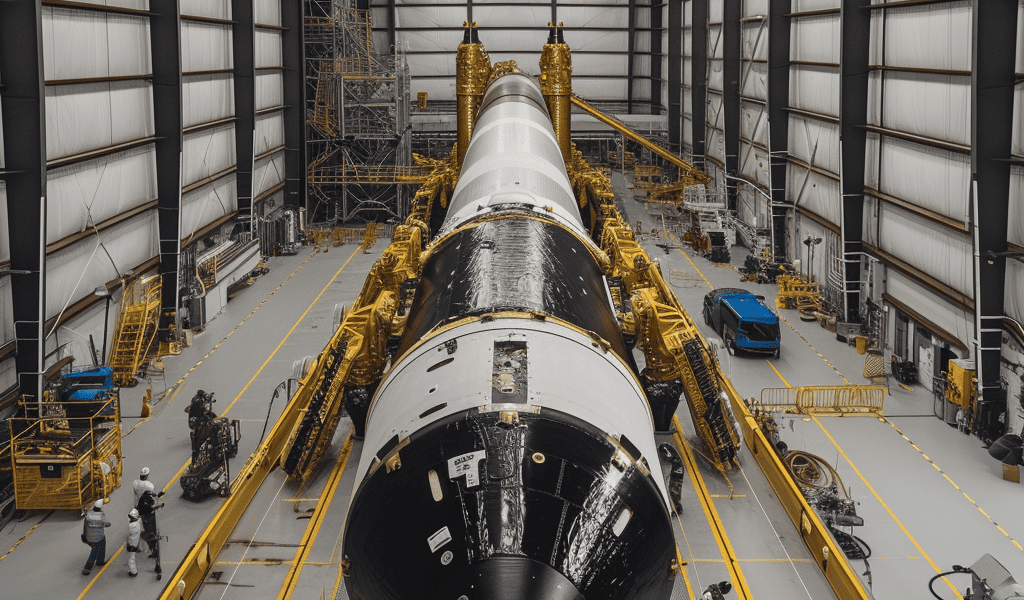A Cygnus cargo spacecraft is set to launch on a Falcon 9 rocket for the first time, marking a significant milestone in space exploration. The mission, designated NG-20, is scheduled to lift off from Cape Canaveral’s Space Launch Complex 40 on January 30 at 12:07 p.m. Eastern. The launch, originally planned for January 29, was rescheduled to ensure launch pad readiness.
If the launch proceeds as scheduled, the Cygnus cargo spacecraft will arrive at the International Space Station on February 1. This mission represents the first time that Northrop Grumman’s Cygnus cargo spacecraft will be launched on a Falcon 9 rocket. Previously, Cygnus missions were launched using Northrop’s own Antares launch vehicle, with a couple of exceptions that utilized United Launch Alliance’s Atlas 5.
Northrop Grumman plans to conduct at least three Cygnus missions using Falcon 9 rockets as it collaborates with Firefly Aerospace on a new version of the Antares launch vehicle. This new version, the Antares 330, is expected to debut in mid-2025, featuring a stage developed by Firefly using its own engines, replacing the Ukrainian-built first stage powered by Russian engines.
During a briefing, Cyrus Dhalla, vice president and general manager of tactical space systems at Northrop Grumman, stated that the transition to the Falcon 9 rocket was relatively smooth for Northrop. Minor adjustments were made to the cargo loading process, attributed to the use of new facilities and equipment, but the overall capabilities of the Cygnus remain unchanged.
SpaceX, the launch provider, had to make specific modifications to accommodate the Cygnus cargo spacecraft, particularly enabling the capability for “late load” of cargo within 24 hours of launch. Unlike the Antares, which features a “pop top” opening at the top of the rocket’s payload fairing for late cargo loading, SpaceX had to implement similar capabilities for the Falcon 9 launches of Cygnus.
The NG-20 mission will carry a payload of over 3,700 kilograms, showcasing the current capacity of the Cygnus cargo spacecraft. This significant development in the space industry highlights the collaboration between Northrop Grumman, SpaceX, and Firefly Aerospace, propelling advancements in space exploration and transportation.





